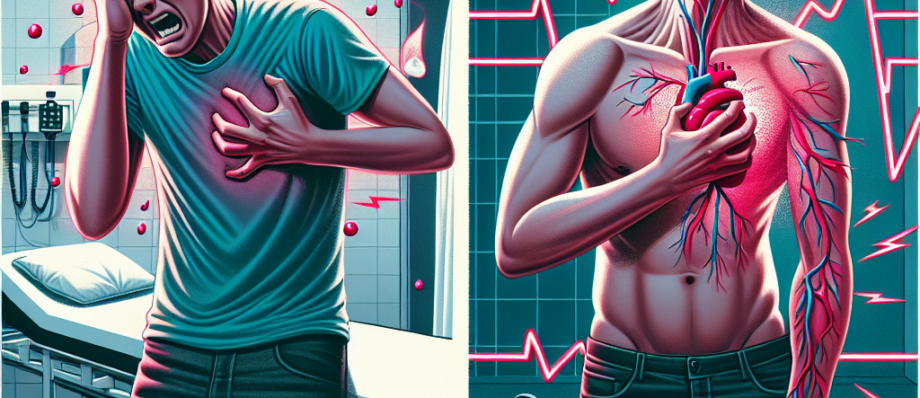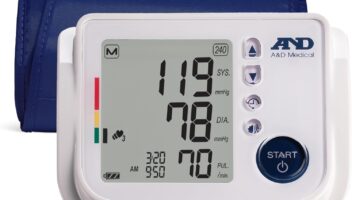Panic Attack vs. Heart Attack: Understanding the Differences and Why Online Therapy Can Help
Experiencing a sudden onset of intense fear, chest pain, and a racing heart can be alarming. But how do you distinguish between a panic attack and a heart attack? In this blog, we’ll explore the key differences between panic attacks and heart attacks, share personal experiences to provide hope and understanding, and highlight the benefits of online therapy treatment.
Understanding these differences can bring peace of mind and guide you towards the right course of action. So, let’s dive in!
What Is a Panic Attack?
A panic attack is an abrupt episode of intense fear or discomfort that reaches a peak within minutes. It’s often accompanied by physical symptoms like:
- Rapid heartbeat 😰
- Shortness of breath
- Chest pain
- Dizziness
- Sweating or chills
At its worst, a panic attack can make people feel like they’re losing control or even dying.
Personal Anecdote: Several years ago, I woke up in the middle of the night with a heavy chest, struggling to breathe. I was convinced I was having a heart attack. After a visit to the ER, I learned it was a panic attack. Knowing this now helps me manage my symptoms better and keeps me from panicking further.
What Is a Heart Attack?
A heart attack occurs when the blood flow to a part of the heart is blocked, usually by a blood clot or plaque buildup. This can cause serious damage to the heart muscle and can be life-threatening. Symptoms include:
- Severe chest pain or discomfort that may radiate to arms, back, neck, or jaw 💔
- Shortness of breath
- Sweating
- Nausea or vomiting
- Lightheadedness
A heart attack requires immediate medical attention. If you’re in doubt, it’s always safer to seek emergency care.
Key Differences Between Panic Attack and Heart Attack
To the untrained eye, symptoms of panic attacks can mimic those of heart attacks, but there are crucial differences:
Duration and Intensity:
- Panic attacks typically peak within 10 minutes and then fade, while heart attack symptoms increase in severity over time.
Type of Pain:
- Panic attack pain is usually sharp or stabbing and localized to the chest area.
- Heart attack pain feels like pressure, squeezing, or fullness and may spread to the arms, neck, or back.
Associated Symptoms:
- Panic attacks can cause hyperventilation and tingling sensations.
- Heart attacks may cause nausea, cold sweats, and severe fatigue.
Here’s a quick chart for a visual comparison:
| Symptom | Panic Attack | Heart Attack |
|---|---|---|
| Chest Pain | Sharp, stabbing | Pressure, squeezing, or burning |
| Duration | Peaks within 10 minutes, then fades | Gradually worsens |
| Additional Pain | Focused on the chest only | Radiates to arms, neck, back, or jaw |
| Breathing Issues | Hyperventilation common | Shortness of breath |
| Associated Symptoms | Dizziness, tingling sensations | Nausea, cold sweats |
Managing Panic Attacks: The Role of Online Therapy
Online therapy offers a convenient way to access mental health support without leaving your home. Treatment options like cognitive-behavioral therapy (CBT) can help identify triggers, develop coping strategies, and reduce the frequency and intensity of panic attacks.
Benefits of Online Therapy
👉 Accessibility: Access therapy anytime, anywhere.
👉 Anonymity: Discuss your issues in a private environment.
👉 Flexible scheduling: Fit therapy sessions into your busy life.
👉 Affordability: Often more cost-effective than traditional options.
Curious about how online therapy can help manage panic attacks? Explore Panic Attack Treatments now to find the right fit for you!
Hope Beyond the Struggle
Through personal experience and backed by science, it’s clear that you don’t have to suffer in silence. Recognizing the signs of panic attacks and knowing the differences from heart attacks can reduce your anxiety about these episodes.
I vividly recall the day I was finally able to tell the difference between my panic attack and what I feared was a heart attack. It was a huge relief, and with this knowledge, I could calmly take steps to mitigate my symptoms or seek proper medical help.
FAQ: Common Questions About Panic Attack vs. Heart Attack
Q: Can a panic attack cause a heart attack?
A: While panic attacks are highly distressing, they do not cause heart attacks directly. However, chronic stress and anxiety can affect overall heart health.
Q: How can I tell if it’s a heart attack or a panic attack?
A: Look at the symptoms and their duration. If you’re unsure, seeking immediate medical attention is the safest approach.
Q: What should I do if I think I’m having a panic attack?
A: Practice deep breathing, stay grounded, drink water, and find a calming activity. If symptoms persist, consult a healthcare provider.
Q: Is online therapy effective for panic attacks?
A: Yes, numerous studies show that online therapy, like CBT, is highly effective in treating panic disorder and anxiety.
For anyone grappling with the fear of panic attacks, remember that help is just a click away. Discover the best options for panic attack treatments through online therapy.
You have the power to regain control over your life. 🌟
Disclosure:
Hospitals.net is a participant in the Amazon Services LLC Associates Program, an affiliate advertising program designed to provide a means for sites to earn advertising fees by advertising and linking to Amazon.com, .ca, .co.uk, etc.
AI Disclaimer:
Hospitals.net uses artificial intelligence (AI) tools to assist in gathering and summarizing product information, including reviews and other relevant data for Amazon products and services. While we strive to ensure the accuracy of the information provided, AI-generated content may not always reflect the most up-to-date or accurate details. The information on our site should not be considered professional advice, and users are encouraged to verify any product details directly with Amazon or other official sources before making a purchase.
We do not guarantee the completeness or accuracy of the AI-generated content and are not liable for any discrepancies or errors. Any reliance on the information provided is at the user’s own risk. By using this site, you acknowledge that product availability, pricing, and other details may change over time, and Hospitals.net is not responsible for these changes.
Health Disclaimer:
The health products and information provided on Hospitals.net are for informational purposes only and are not intended to substitute professional medical advice, diagnosis, or treatment. Always consult a qualified healthcare provider or medical professional before using any health products or following any advice you find on this site. The content on Hospitals.net, including product recommendations and reviews, is not a substitute for individualized care from a healthcare provider.
We make no warranties or representations regarding the effectiveness, quality, or safety of the products listed on our site. Any use of these products is solely at your own risk. Hospitals.net is not liable for any harm, injury, or adverse effects that may result from the use or misuse of the health products or information provided.
Please read all product labels, warnings, and directions provided by the manufacturer before using any product. If you have any questions about a product or its suitability for your condition, we recommend contacting the manufacturer directly or consulting a healthcare professional.
If you have any concerns regarding the accuracy of the information on this site, please contact us for further clarification.



